In today's fast-paced world, mobile ticketing is revolutionizing how we experience events, making it easier and more convenient than ever before. Imagine no longer fumbling for paper tickets or standing in long lines; everything you need is just a tap away! This innovative solution not only enhances user experience but also streamlines event management for organizers. Curious to learn how mobile ticketing can transform your next event? Keep reading for all the details!
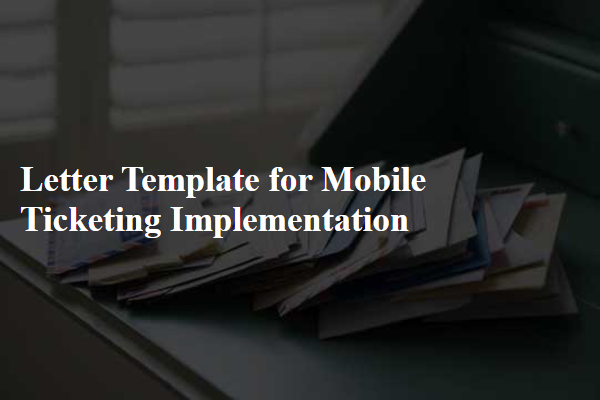
Introduction to Mobile Ticketing
Mobile ticketing is a technology that enables users to purchase, manage, and validate tickets for events or transportation using their smartphones or other mobile devices. This innovative approach to ticketing significantly enhances the user experience by providing convenience and accessibility, reducing the reliance on physical tickets. Mobile ticketing systems often utilize QR codes or barcodes, facilitating rapid entry through scanning at venues or checkpoints. Additionally, these systems can integrate with mobile wallets, enabling seamless transactions. The adoption of mobile ticketing has seen tremendous growth, particularly in sectors such as public transportation (like metro systems in New York City), live events (like concerts at Madison Square Garden), and sporting events (like NFL games), where real-time updates and notifications improve customer engagement and operational efficiency. Integrating mobile ticketing not only streamlines the ticketing process but also reduces the risk of ticket fraud, enhances data collection for marketing purposes, and lowers operational costs associated with printing and distributing physical tickets.
Key Benefits and Advantages
Mobile ticketing implementation, empowered by smartphones, delivers numerous advantages for event organizers and attendees. Enhanced convenience enables users to purchase tickets seamlessly using applications on devices like iPhones and Androids, negating the need for physical paper tickets. Real-time access allows immediate updates regarding event changes or reminders, improving communication effectiveness. Security advancements, such as QR codes or digital barcodes, reduce the risk of counterfeit tickets and streamline entry processes at venues. Additionally, mobile ticketing can decrease operational costs associated with printing and distribution, promoting sustainability through reduced paper waste. Analytics generated through mobile ticketing platforms provide valuable insights into consumer behavior, empowering organizations to refine marketing strategies for future events.
Implementation Steps and Timeline
Implementing mobile ticketing technology in public transportation systems involves several critical steps and a well-defined timeline. Initial phase includes requirement assessment which focuses on understanding user needs and system capabilities by conducting surveys or focus groups, typically over a four-week period. Following this, vendor selection process occurs, lasting six weeks, where agencies evaluate proposals from technology providers specialized in mobile ticketing solutions. Next, a two-month development and customization phase transpires, where chosen vendors tailor the mobile application and backend systems to meet specific operational needs like transaction processing and user account management. Testing phase ensues, spanning three weeks, involving pilot programs with select user groups to identify potential bugs and gauge user experience. The final phase is a full-scale deployment across all platforms, taking approximately one month for marketing and user education to ensure seamless adoption. Overall timeline is expected to be around five to six months from initiation to full implementation.
Security and Compliance Measures
Mobile ticketing systems, especially in public transportation and event management, must incorporate robust security and compliance measures to protect user data and ensure system integrity. The implementation of encryption protocols, such as AES (Advanced Encryption Standard), safeguards sensitive information during transactions. Regular audits aligned with industry standards, including PCI DSS (Payment Card Industry Data Security Standard), ensure that all payment processes maintain compliance, mitigating the risks of fraud and data breaches. Furthermore, utilizing secure authentication methods, like two-factor authentication (2FA) or biometric verification, helps to verify user identity before ticket issuance. Compliance with local regulations, such as GDPR (General Data Protection Regulation) in the European Union, is imperative for data protection and privacy, requiring explicit consent from users for data collection and storage. Continuous vulnerability assessments and penetration testing validate the security architecture, ensuring ongoing protection against potential threats while fostering user trust in the mobile ticketing platform.
Contact Information for Support and Queries
Mobile ticketing systems streamline event access and enhance user experience for venues like stadiums and theaters, employing digital platforms to facilitate ticket purchase and validation. Customers can save important information, such as order ID numbers and QR codes, on their smartphones for easy retrieval. Support services operate 24/7, offering assistance through various channels, including telephone, email, and live chat, which are essential for addressing any issues or inquiries. FAQs are provided on official websites to help users troubleshoot common problems regarding ticket activation and refunds. Furthermore, user feedback is vital for ongoing improvements in app functionality and customer satisfaction.
Letter Template For Mobile Ticketing Implementation Samples
Letter template of mobile ticketing implementation for event organizers.
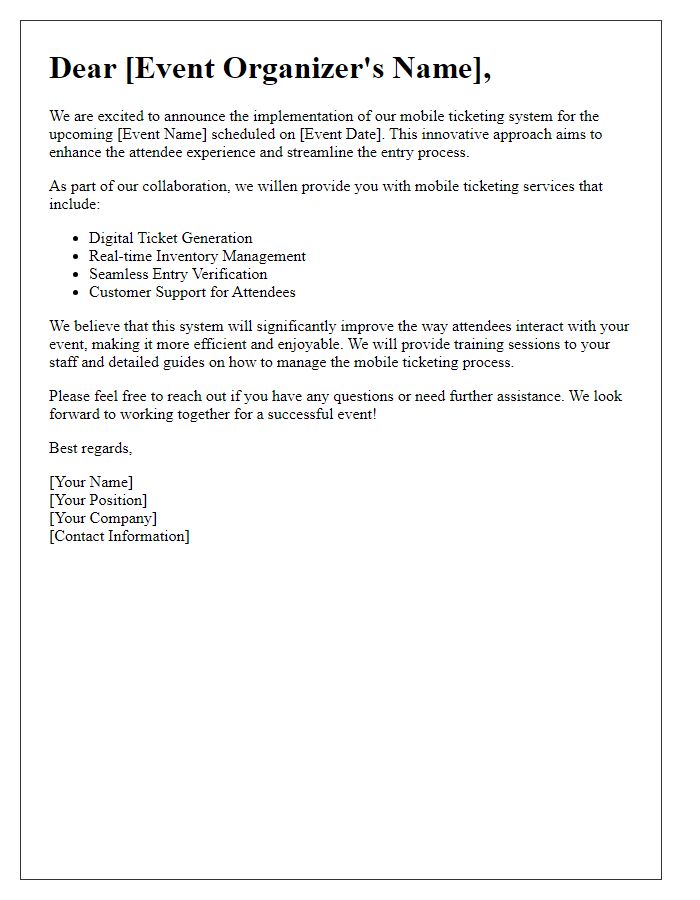
Letter template of mobile ticketing implementation for transportation sector stakeholders.
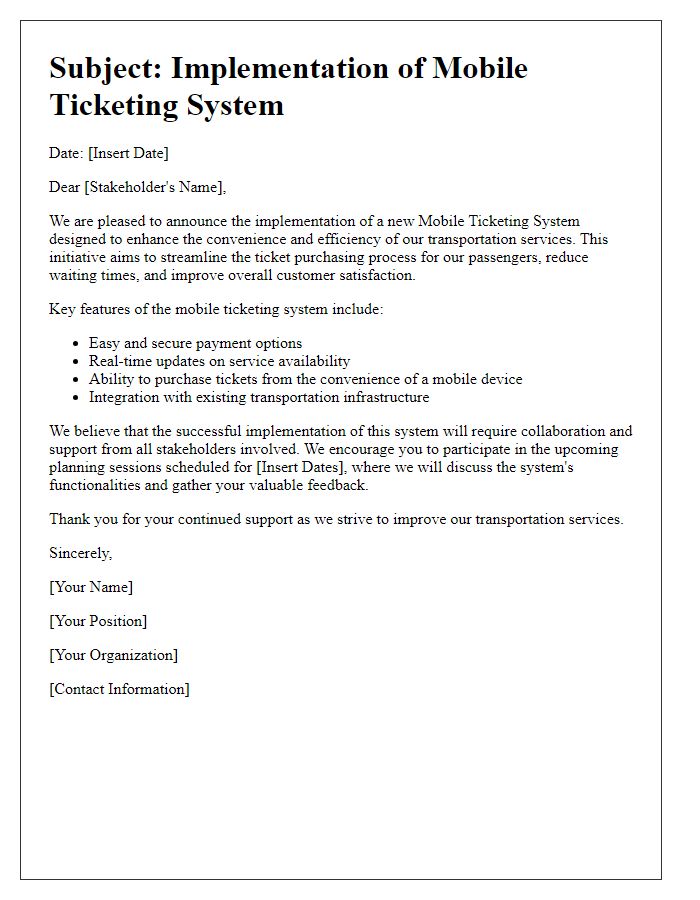
Letter template of mobile ticketing implementation for corporate partners.
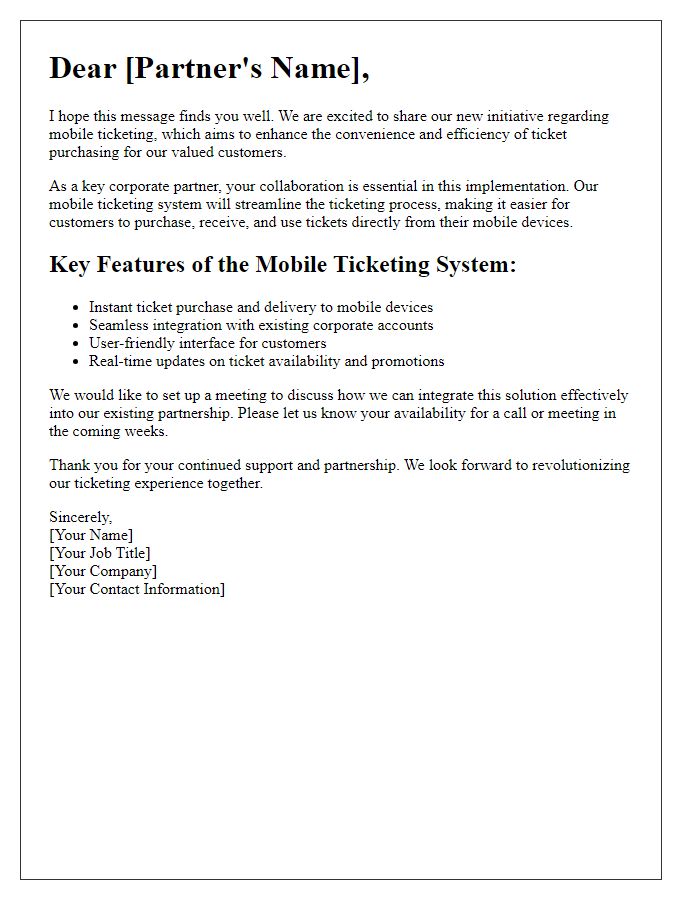
Letter template of mobile ticketing implementation for customer service representatives.
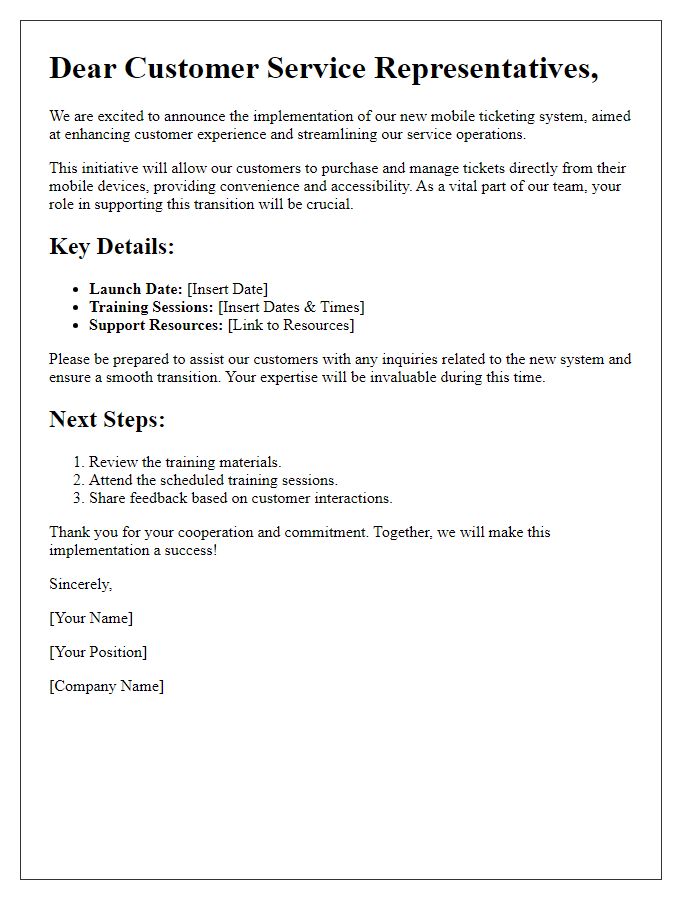
Letter template of mobile ticketing implementation for technology vendors.
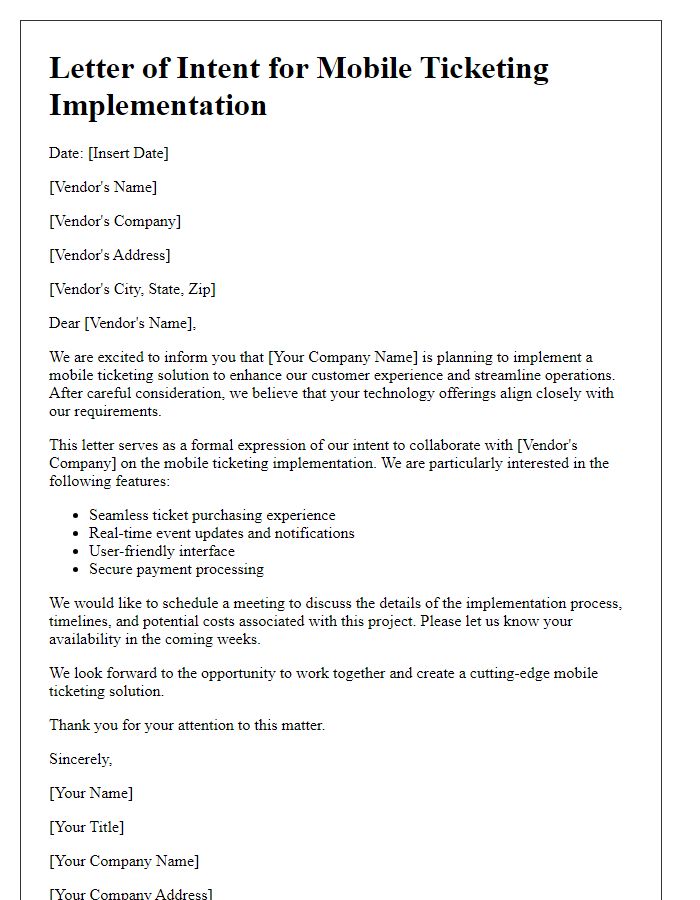
Letter template of mobile ticketing implementation for regulatory authorities.
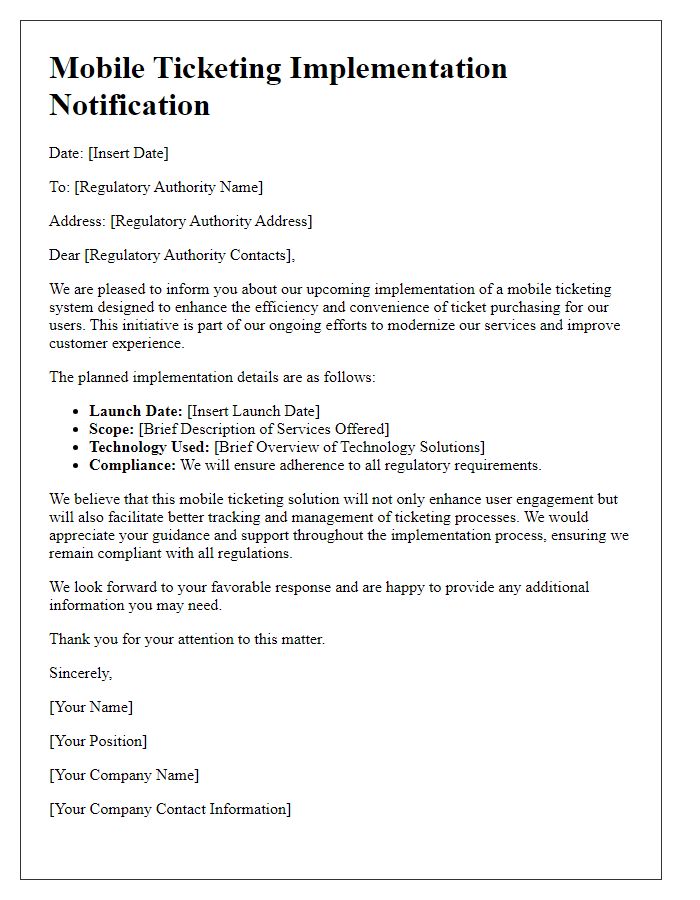
Letter template of mobile ticketing implementation for venue management.
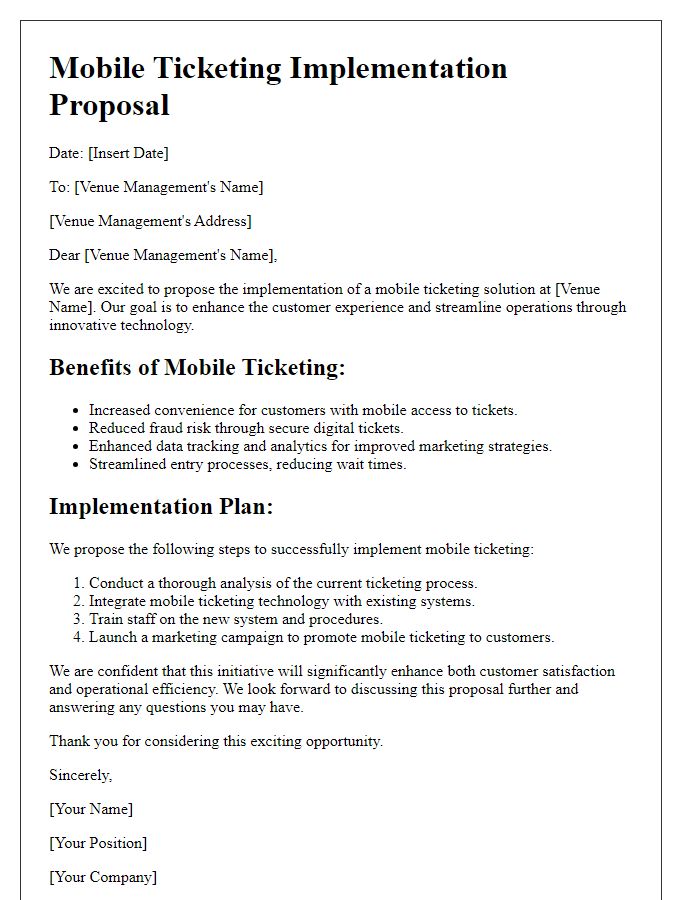
Letter template of mobile ticketing implementation for software development teams.
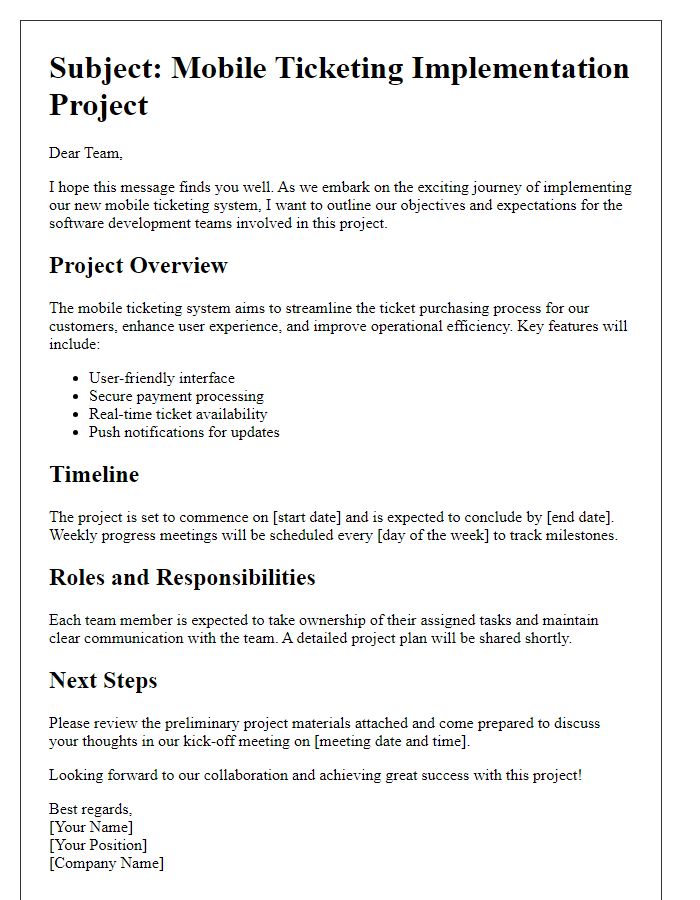

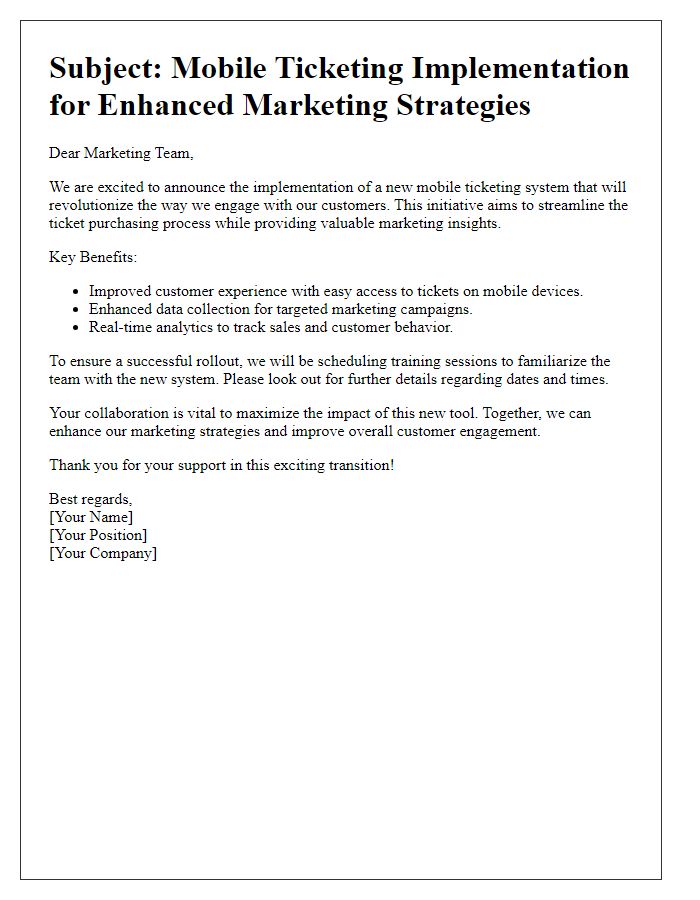
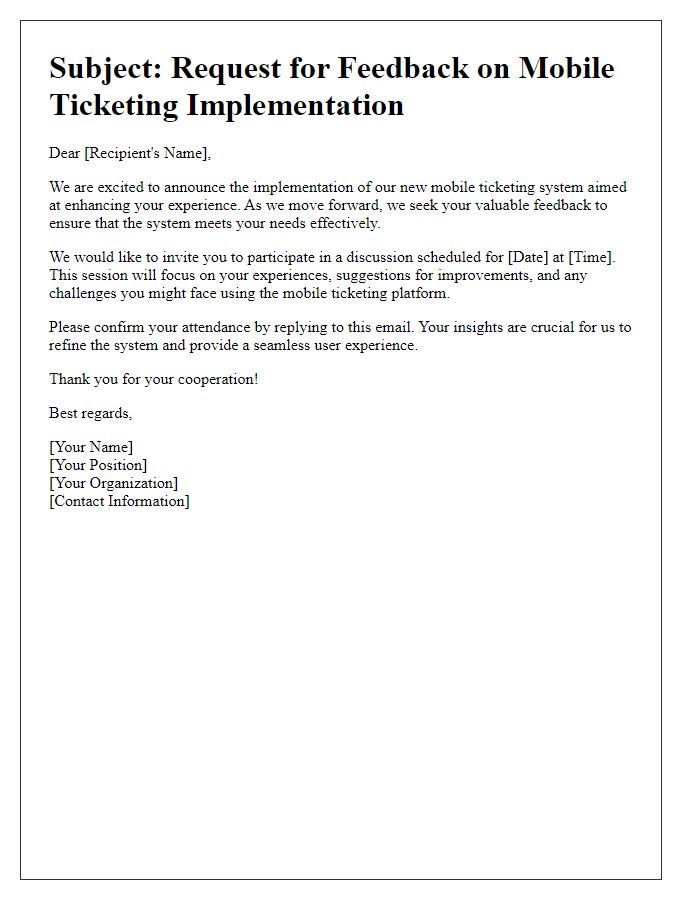


Comments